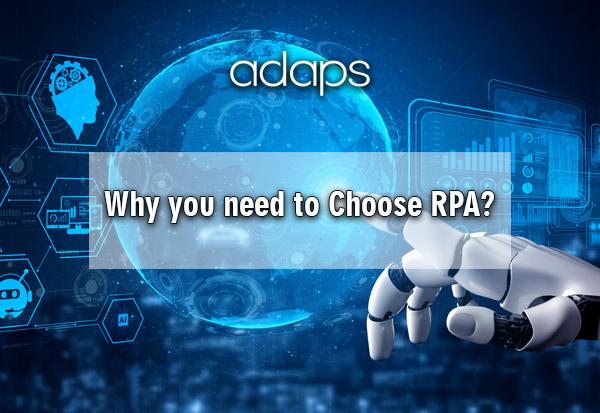Robotic Process Automation (RPA) is one of the most interesting developments in the Management of Business Processes in recent history. Few industry experts believe that it may become more transformational than cloud computing.Companies are rapidly adopting Robotic Process Automation to ensure improved customer experience, which is the essence of any business strategy today. Advantages of RPA include delivering error-free and quick service facilities to the enterprises that have already executed RPA. The RPA adoption rate has increased globally at a much quicker pace than ever. The eventual goal for any business today is boosting productivity with performance. As per the recent report, 85 percent of large firms will deploy RPA in their work process.
Importance of Hyperautomation is Increasing
As a faster, smarter, and more sophisticated version of RPA, hyperautomation is set to become extensively used over large-scale enterprises. By utilising the power of RPA, AI, and ML, hyperautomation is intended to process large volumes of data end-to-end seamlessly for optimising the business processes over diverse areas. As the automation going to be adopted at greater volumes in the near future, the need to automate more complicated tasks will become more evident.
Hyperautomation empowers enterprises to automate the complete processes priorly compartmentalised by traditional RPA that includes integration, monitoring and management, DevOps into one process. It further promotes capability and productivity at a much greater scale than ever before.
RPA will not Restrict to Information Technology
As per the latest research report, RPA’s adoption is set to rise as the awareness of RPA technology increases among business users around the globe. RPA is no longer counted as a ‘new’ technology as many firms are using it in varying capacities. RPA technology’s advantages are witnessed over several businesses processes and departments, and its adoption may increase in the areas that are not specific to IT.
RPA technology is being practised at high-level business operations, as top-level professionals are commencing to see the advantages of automation to enhance the efficiency and accuracy of multiple business processes. Experts predict that almost half of RPA adoption will be implemented by departments that are not specific to IT by 2024.
Popular Advantages with RPA:
Decreased Operational Risks: If humans execute tedious operations, they are prone to more errors than if software robots execute it. RPA thus supports in reducing human errors in processes.
Improved Data Collection: Nowadays, data is collected in different forms, and Chatbots are being used by several social media platforms, e-commerce sites, and apps for their customer interaction to create and collect better data points. It has turned out to be a credible source of data, which priorly was a labour-intensive task.
Enhances Abilities in the Analytics: RPA technologies are competent in gathering quality data points that improve organisations’ analytical abilities, thus delivering more reliable business forecasts.
Scalability: RPA is enterprise-wide scalable to scale up or down your operations that depend on the organisations’ requirements.
Improved Security: Virtual workforces like bots ensure security as there is no risks from employees like leaving the organisation, thus reducing the hacking data risk.
Enhanced Accuracy: One of the significant benefits of RPA is accurate and error-free service. RPA can eliminate processing errors in all fields to optimise business processes and plan the right business strategies.


